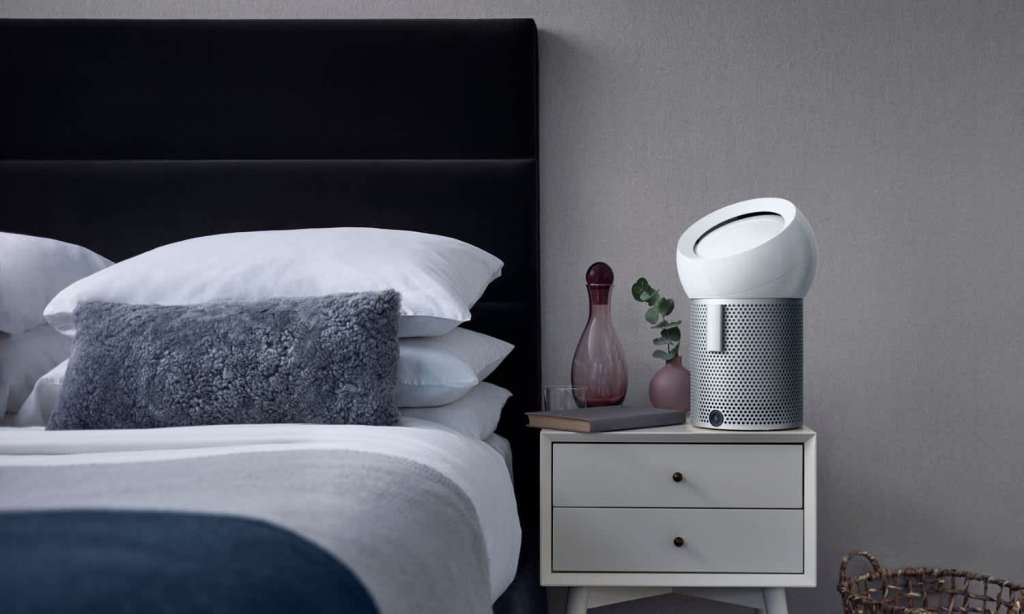We Australians love our clean, fresh air. So much so, that we’ve even bottled it up and sold it overseas. Between last year’s bushfires (yes, they were last year) and COVID, we’ve come to value it even more – if we can get it in the first place. We spend 90% of our time indoors, and that air can be polluted. Yep, indoor air pollution is a real thing.
In fact, the CSIRO estimates that the cost of poor indoor air quality may cost up to $12 billion a year, and risk studies show that indoor air pollution is among the top five environmental risks to public health.
So how does our indoor air even get polluted? Sotiris Vardoulakis, Professor of Global Environmental Health at Australian National University, says it can come from cooking, smoking, wood-burning, cleaning products, or even certain cosmetics. An air quality engineer from Dyson adds that it can also come from pollen, pet dander, scented candles, indoor paints, and more. Seems like anything in your house probably is a form of air pollution.
As mentioned, indoor air quality can affect us and our health. According to Professor Vardoulakis, it can significantly impact our respiratory health in particular. “Certain groups may be particularly sensitive to the effects of air pollutants including young children, pregnant women, the elderly, and the one in nine Australians who suffer from respiratory health conditions such as asthma, hay fever or bronchitis.”
Outside of these, some people may experience immediate effects of indoor air pollutions, which can include, “irritation of the eyes, nose and throat, sneezing, headaches and fatigue,” said Professor Vardoulakis.
You’d be forgiven for thinking “just open a window, damnit” but natural ventilation doesn’t always work. Or as Professor Vardoulakis told The Latch, “It’s not always possible to keep the windows open due to noise, bad weather or outdoor pollution”.
So what’s the solution here? Well, as you may have caught wind of, from the headline (pun intended) air purifiers are having a moment. Well, more than a moment. They seem to really be sticking around.
Why? Because air purifiers, with HEPA and active carbon filters, can be “very effective in improving indoor air quality in a home,” according to Professor Vardoulakis. When appropriately used they can “reduce exposure to pollution and provide added protection from everyday pollutants found in our homes,” he added.
When we’re breathing up to 9,000 litres of air a day, we need it to be as clean as possible. “Removing pollutants like volatile organic compounds (VOCs), nitrogen dioxide (NO2), and dust and allergen particles can provide cleaner air in the home,” advised Profession Vardoulakis, “and help support overall wellbeing.”
If you’re wondering exactly how an air purifier works, or what a HEPA filter is, you’ve come to the right place. HEPA stands for high-efficiency particulate air. Expanding on this, Dyson’s air quality engineer explained that they’re made from “borosilicate microfibres that have been pleated hundreds of times, to capture particles as small as 0.1 microns” (That’s very, very, very small).
Sometimes, depending on the model, they’re combined with an activated carbon layer to form a two-stage filter. And if you’re wondering what that is, the filter “has been engineered using a dense layer of carbon crystals and treated with oxygen to make it more porous”. If that sounds like a lot of confusing science to you (it does to me!), essentially the carbon layer helps trap gases such as formaldehyde, benzene and NO2 (bad stuff that you don’t want to breathe in).
So essentially, the machine traps the bad stuff and feeds you the good stuff (purified air). One of Dyson’s products, the Pure Hot+Cool™ purifying fan heater can project 290 litres of purified air per second to every corner of the room. The latest product, the Dyson Pure Cool Me TM personal purifying fan, is small enough to sit on your bedside table or desk and deliver pure air right to your face (the dream).
Oh, and if you’re wondering if it’s worth the hype? Dyson topped the air purifier category in the 2020/2021 Finder Retail Awards, and are recommended by 90% of consumers. So yeah — it might be time to invest in an air purifier. Your lungs will thank you for it.







